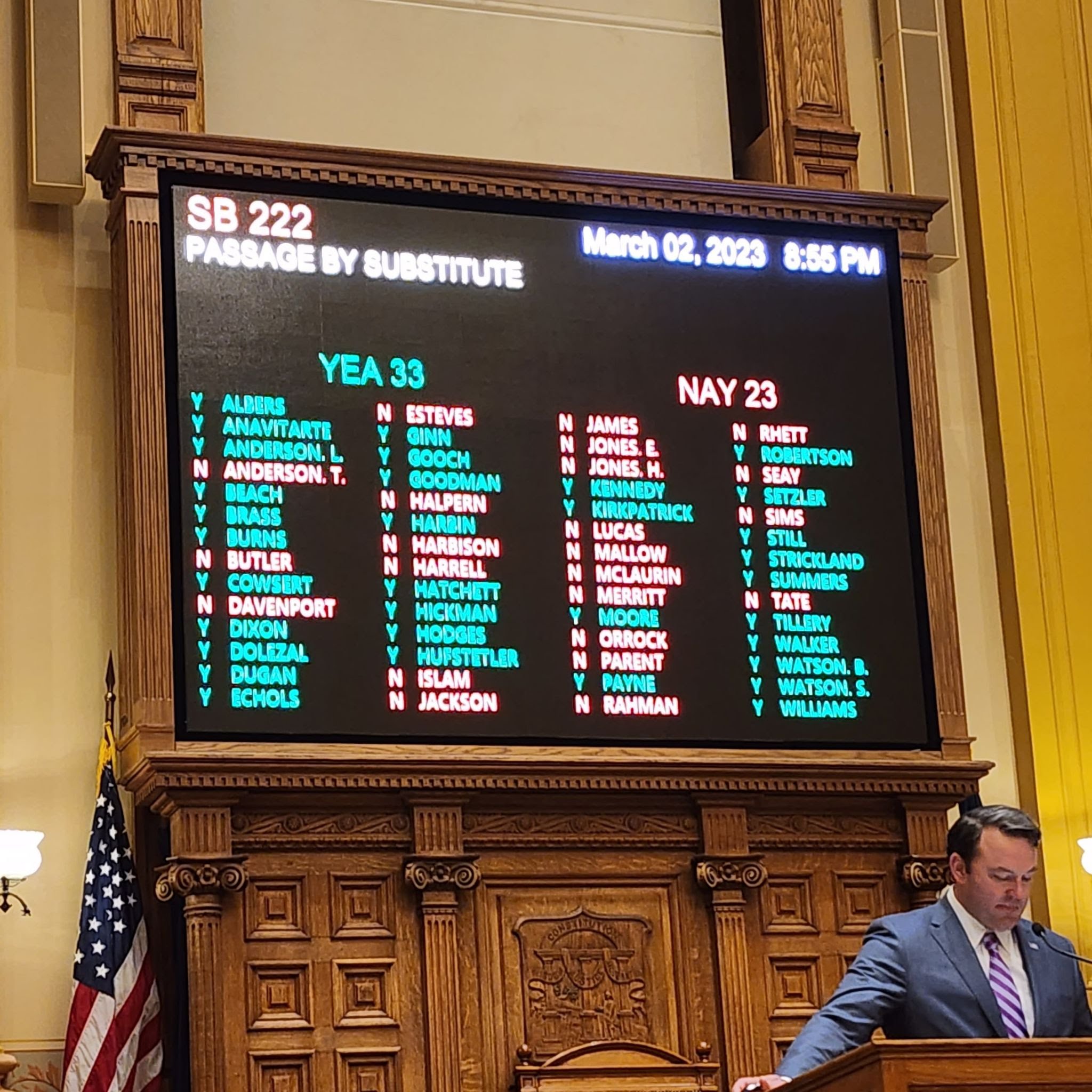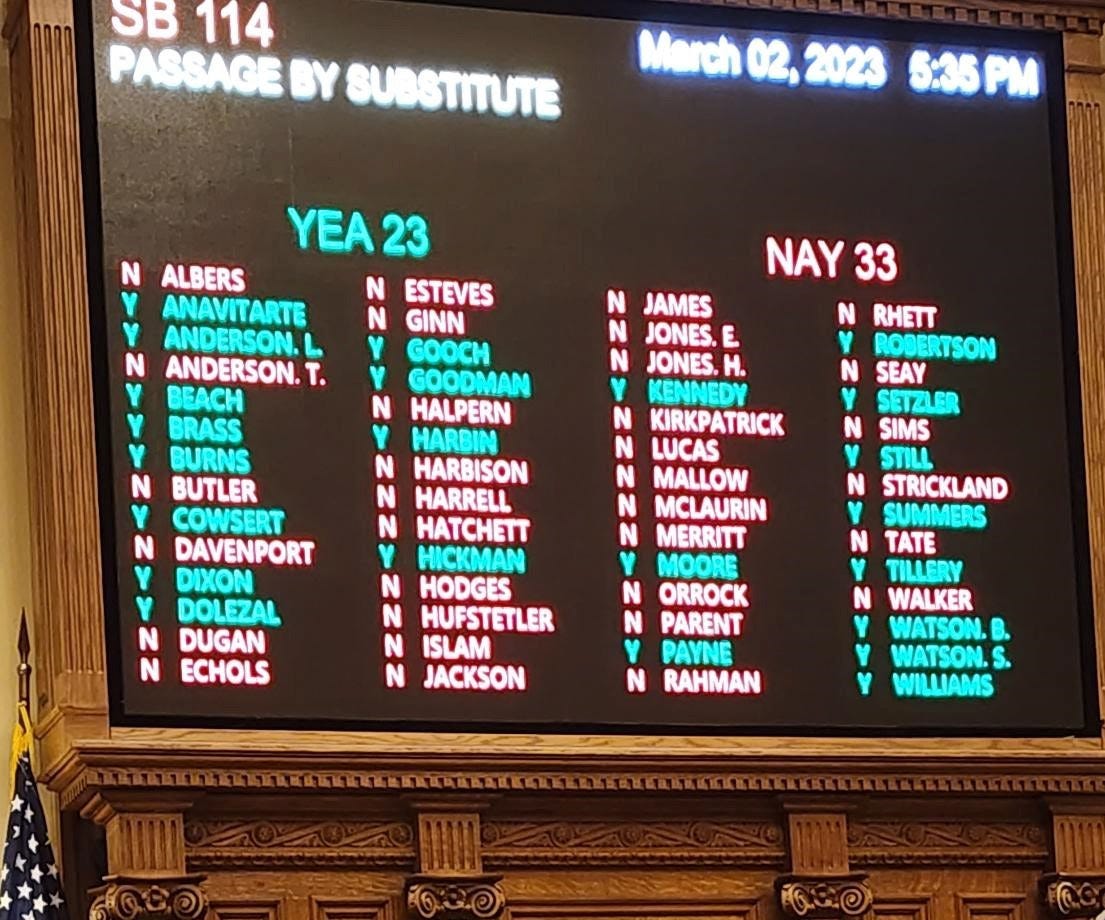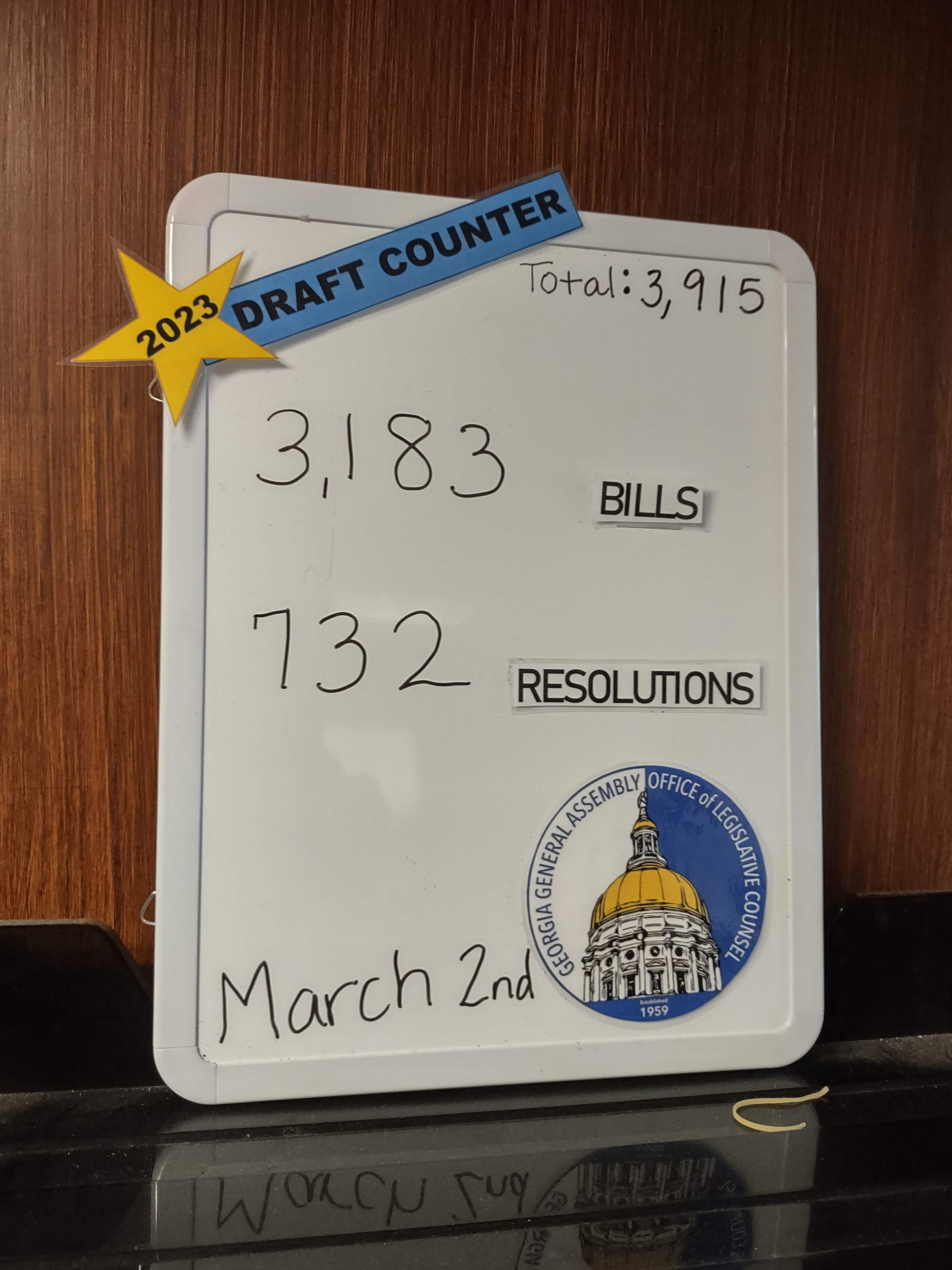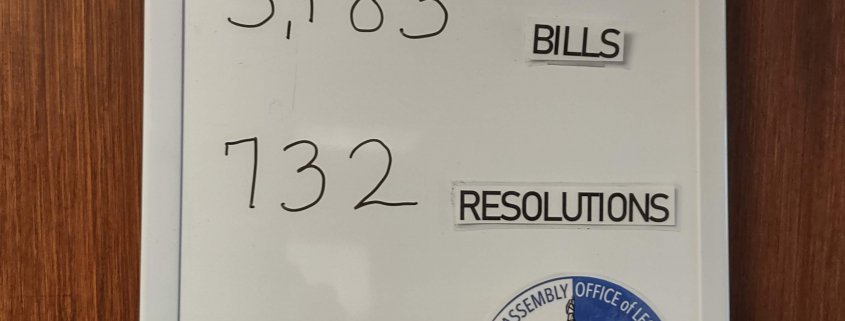It’s a Numbers Game
Sometimes numbers stick in my brain and sometimes they don’t.
This year alone, legislators have filed 955 Bills and 662 Resolutions. So if you bring a bill to my attention just by its number, I’m going to say, “Tell me what the bill does.”
After Crossover Day this Monday, some bills that don’t make it will actually change numbers as they get attached to other bills to help them cross the finish line. The numbers are a moving target.
Here are some other numbers that did stick in my brain this week.
33 R, 23 D: The Senate Partisan Divide
29: “Yes” Votes Needed to Pass a Bill in the Senate
37: “Yes” Votes needed to pass a Constitutional Amendment in the Senate
Calculated Moves
It takes a two-thirds vote in each chamber to pass a Constitutional amendment, which means the Republicans cannot pass certain ballot initiatives without some help from across the aisle. This is an important negotiation power for the Minority Party.
This came into play this week when the “Local Consent Calendar” came up for its daily vote. Local bills impacting cities and counties are placed on the Calendar by local delegations. They are usually non-controversial and therefore voted on all together.
But this week the “Calendar” contained a bill to allow Ware County to change its Elections Board from a bipartisan board chosen by the political parties to one appointed by the all Republican County Commission — a partisan power grab enacted through local bills about a dozen times last term. Democrats wanted to go on record opposing this, but by voting against the entire Calendar, we would also inadvertently kill a Constitutional Amendment Resolution authored by the powerful Rules Chair (requiring a 2/3rd vote).
Since the Rules Chair has the power to block bills from coming to the Senate floor, it’s never a good idea to make him mad, especially right before Crossover Day. But only a local legislator has the ability to pull out a bill from the Local Consent Calendar to be voted on separately. So we explained the dilemma to the Rules Chair, who convinced a Senator from Ware County to pull out the Elections Board bill to be voted on separately. Problem solved. Democrats got their opposition vote recorded and the Rules Chairman got his Constitutional Amendment.
Republican Votes Don’t Add Up
In the Senate, it takes 29 votes to pass a bill, which keeps the 33 Senate Republicans close to their seats. If just five of their members aren’t there to vote, or they join Democrats in dissent, the bill fails. Democrats also now have an unlikely ally in a Republican freshman Senator who came from the House and is proudly against anything that restricts freedom from government interference and infamous for voting “no” on almost everything. That sometimes gives Democrats an additional opposition vote.
During an 11 hour marathon on the Senate floor Thursday, Republicans failed three times to get to that magic 29 votes. It’s unusual for bills to fail on the floor. The following bills failed:
SB 114: City of Buckhead referendum
SB 196: Making seat belt evidence admissible in car wreck cases
SB 57: Sports and horse betting without a statewide referendum
Three Cheers for Unanimous Votes
This year it’s been unusual to see a vote count of 56-0 on the Senate floor. But this week it happened three times in one day. Each time, everyone broke out in applause. In a parliamentary inquiry, the Senate Majority Leader joked, “Should we have the Secretary of the Senate check the machines?” The Lt. Governor retorted, “Who says we can’t work together?”
The bills we agreed on all had to do with child welfare — respite care for foster parents, access to mental health services prior to parental termination, and allowing children to testify in parental termination cases without being under oath.
“Don’t Say Gay” Bill Gets Deep-Sixed
Sometimes certain bill numbers do become memorable. This year, SB 88 became known as Georgia’s “Don’t Say Gay” bill, which banned discussion of LGBTQ issues in school without parental consent.
This week, the Education and Youth Committee heard a very different Committee substitute that required local school boards to create policies to address gender identity and private schools and camps to notify parents when gender identity issues were to be discussed. Senators and constituents who were initially in favor of SB 88 suddenly changed their minds once they heard the bill attempted to regulate private schools and camps. The bill was ultimately tabled.
Republicans Zero In on Elections. Again.
SB 222, a bill to prohibit county and municipal governments from taking third-party donations to help fund elections, also came up during the marathon Thursday session. In my opposition speech, I reminded my colleagues that in the four years I sat on the Ethics Committee where we required County Elections departments to purchase expensive new voting equipment with HB 316, and created onerous requirements for Elections staff with SB 202, there were exactly zero fiscal notes attached to those bills and zero dollars appropriated to help cover these unfunded mandates. Sadly, the bill passed with a party line vote of 33-23.
We’ve been keeping track of SB 221, another bad Elections bill that would completely eliminate ballot drop boxes, make it easier for voter registrations to be challenged, and add more unnecessary steps for elections staff to “protect against fraud.” The Secretary of State’s office warned that as written, SB 221 could violate the National Voter Registration Act, but the bill was voted out of Committee. Thankfully, it looks like SB 221 never made it out of the Senate Rules Committee, which means there’s zero chance we’ll be voting on it on Crossover Day.
Crossover Day Math
Monday is Legislative Day 28, also known as Crossover Day. It’s the deadline for bills to pass at least one chamber in order to cross over to the other chamber for passage this year.
I counted how many bills and resolutions we have voted on in the Senate during the first 27 Legislative days: 11 Resolutions and 67 Bills. The calendar for Crossover day includes 74 bills. That means that on Monday, the Senate will consider just about as many bills as we have considered so far during the entire session. The Senate should take a time-management course.
We celebrate our wins when bad bills get tabled, or don’t make it to the floor in time for a vote. But the game is not over until we adjourn Sine Die. And then there’s next year. I’m still in the game.






